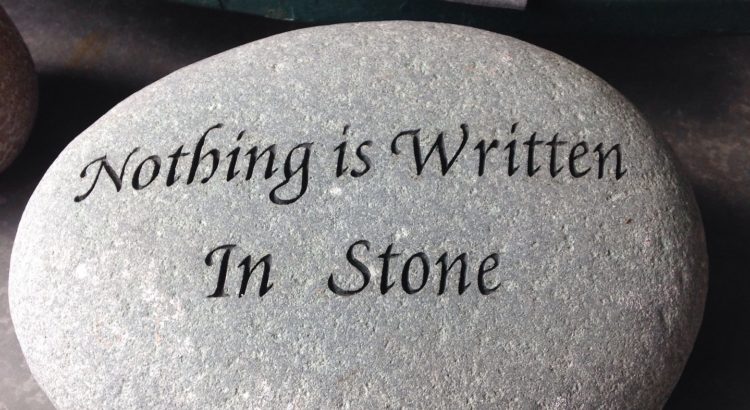(Level B2 and above: On the difference between irony and sarcasm, with examples, quiz, videos and vocabulary exercise)
Written and compiled by Benedicte Gravrand, English trainer at The Language House in Geneva
When we hear verbal irony, we often assume it is sarcasm – but there is one small difference between irony and sarcasm. Here’s a brief elucidation that we hope will help you spot the difference during your future comedy viewings.
For those of you who enjoy watching comedies, we have a little brain teaser:
What is the difference between sarcasm and irony?
Here’s a brief elucidation that we hope will help you spot the difference during your future viewings.
Irony: not literal
Irony – or situational irony – is when something happens that is the opposite of what was expected; it’s a clash between expectations and reality. It is not about coincidence or bad luck. For example, it’s ironic when a police station gets robbed. Or when a cat chases a dog. Or when a flight attendant is terrified of heights.

Verbal irony is when someone says something that is different from what they really mean or how they really feel. For example, you walk out into a horrible blizzard and say: “what a nice weather we’re having!” It can also be an understatement or an overstatement, or a “figure of speech” – when you don’t take the literal meaning. Like when a teacher tells a quiet class, “Let’s not all speak at once!” The word irony comes from the Latin ironia, meaning “feigned ignorance.”
All words in bold are in the vocabulary exercise.
Examples:
- Stanley Kubrick used verbal irony in Strangelove: “Gentlemen! You can’t fight in here! This is the war room!”
- In The Princess Bride, verbal irony is used romantically when Westley says, “as you wish” instead of “I love you.”
- A woman damages her nail and cries out, “Oh no! My life is ruined!” (overstatement)
- A boyfriend plans to propose to his girlfriend on the night she cancels on him to stay home and binge-watch Grey’s Anatomy. He replies, “Sure. It’s not like I had anything special planned.” (understatement)
- In The Cask of Amontillado, Fortunato says “I shall not die of a cough (toux),” to which Montressor says “True…true.” This is an example of verbal (and dramatic) irony because we know Montressor plans to kill him.
Sarcasm comes from the Greek and Latin – “to tear flesh”
When we hear verbal irony, we often assume it is sarcasm – but there is one small difference between irony and sarcasm.

Actor Bill Murray – master of irony and sarcasm
Sarcasm: hostility disguised as humour
From the Greek and Latin for “to tear flesh,” sarcasm has been called “hostility disguised as humour.” Sarcasm is verbal irony with attitude — the intention being to hurt or mock someone. It is insincere speech. The amount of cruelty can range from light-hearted joking to downright nasty. All sarcasm is verbal irony, but not all verbal irony is sarcasm.
All sarcasm is verbal irony, but not all verbal irony is sarcasm
Examples:
- When someone is struggling to open a door and you ask them, “Do you want help?” If they reply by saying, “No, thanks. I’m really enjoying the challenge,” you’ll know they’re being sarcastic.
- “I walked into my hotel room and wondered if the interior decorators thought orange was the new black.”
- When a roommate is acting bizarre: “is it time for your medication or mine?”
- When someone says something that is obvious (évident) and you say, “Really, Sherlock?”
- When someone puts on too much perfume: “Nice perfume. How long did you marinate in it?”
- When something is uninteresting: “I’m delighted that I get to be here for the next three hours.”
Sarcasm often has a negative connotation; however, research has shown that it can promote creative thinking, something that most forms of humour can do. Sarcasm can also be good for social connection when used in the proper context. For example, to break the ice or subtly tease someone about asking obvious questions.

Ricky Gervais: master at “taking the piss”
“There’s a received wisdom in the U.K. that Americans don’t get irony,” English comedian Ricky Gervais said in Time Magazine. “This is of course not true. But what is true is that they don’t use it all the time. It shows up in the smarter comedies but Americans don’t use it as much socially as Brits. We (the British) use it as liberally as prepositions in everyday speech. We tease our friends. We use sarcasm as a shield and a weapon.” In short, the Brits like to take the piss out of each other.
I hope we will make your comedy viewing a tad bit more enjoyable. No, really, I mean it.
Sources: MasterClass, ScienceofPeople, YourDictionary, smartblogger, Thoughtco, Vocabulary.com, Harvard.edu, Writer.com
Related blog: I’ve had a perfectly wonderful evening, but this wasn’t it.
Quiz
In this quiz, I have included ironic and sarcastic comments and I have added satire, paradox and cynicism to make it more interesting. Some of them could arguably fit into more than one category. Which of these statements is:
a. A paradox (a self-contradictory statement that is somewhat true)
b. An ironic statement
c. A satirical comment (use of humour to criticise people and make them look silly)
d. A sarcastic comment
e. A cynical response (not believing in others’ sincerity)
1. It’s as clear as mud.
2. I am busy right now, can I ignore you some other time?
3. Patience (noun): a minor form of despair, disguised as a virtue. (The Devil’s Dictionary)
4. “I can resist everything except temptation.” (Oscar Wilde)
5. “Before you criticize someone, you should walk a mile in their shoes,” said Leonard. “Yeah! That way, when you criticize them, you’re a mile away and you have their shoes,” replied Peter.
6. A food critic tells the chef, “your steak was as tender as a leather boot.”
7. “I have to have this operation. It isn’t very serious. I have this tiny little tumour on the brain.” (The Catcher in the Rye)
8. “All animals are equal…but some animals are more equal than others.” (Animal Farm)
__________________________
1: b – 2: d – 3: c – 4: a – 5: e – 6:d – 7:b – 8:c
__________________________
To subscribe to our blog, leave your email address
(right-hand side column – or at the bottom
of this blog if you are using a smartphone) and
confirm your subscription when you receive our email
Videos
What is verbal irony?
3’28” – TED
Situational irony: The opposite of what you think
3’11” – TED
15 Times Chandler Was The King Of Sarcasm ft. Matthew Perry | Friends
3’47” (must-watch)
Vocabulary
Match these 18 words or phrases (from the text above) with their respective definition.
- Brain-teaser
- Height
- Understatement
- Overstatement
- Figure of speech
a. a statement that makes something seem less important than it really is
b. the degree to which something is high or someone is tall
c. an expression that uses words to mean something different from their ordinary meaning, for example, “Break a leg”, meaning “good luck”.
d. a difficult question or problem that you try to solve for fun
e. something that you say that makes things seem more important than they really are
Answer key:
1: d – 2:b – 3:a – 4:e – 5:c
- Literal
- Binge-watch
- Range
- Light-hearted
- Downright
f. funny and not intended to be serious
g. a number of different things that are of the same general type
h. most basic meaning of a word
i. to watch several episodes of a TV series at one time
j. (esp. of s/t bad) extremely or very great
Answer key:
6: h – 7:I – 8:g – 9:f – 10:j
- Nasty
- Connotation
- Break the ice
- Tease
k. to do or say something that makes people feel less shy or nervous in a social situation
l. an additional idea or emotion that a word suggests to you, in addition to its literal or main meaning
m. to laugh at someone or say unkind things about them, either because you are joking or because you want to upset that person
n. bad or very unpleasant
Answer key:
11:n – 12:l – 13:k – 14:m
- Received wisdom
- Liberally
- Shield
- Take the piss (out of)
o. an object that protects a particular part of your body
p. in large and generous amounts
q. beliefs or opinions that most people accept to be correct
r. to say something to try to make someone look silly
Answer key:
15:q – 16:p – 17:o – 18:r
Definitions from Macmillandictionary.com and Dictionary.cambridge.org


